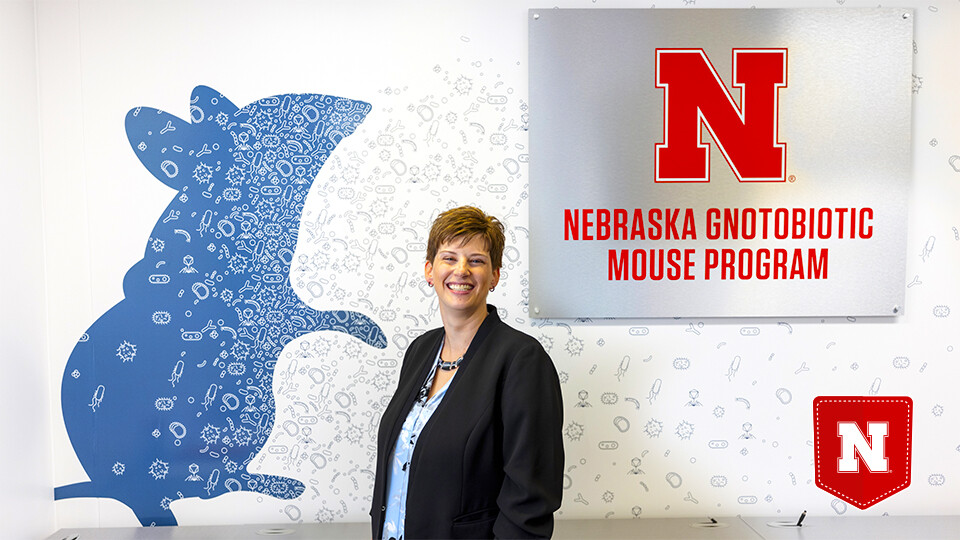Team shows ecological principles at play in gut microbiome

August 8th, 2022
Welcome to Pocket Science: a glimpse at recent research from Husker scientists and engineers. For those who want to quickly learn the “What,” “So what” and “Now what” of Husker research.
What?
The dense, diverse collection of bacteria and other microorganisms that begin colonizing the human gastrointestinal tract from birth — collectively called the gut microbiome — is known to influence digestion and immune responses. Accumulating evidence hints that the microbiome can sway other systems, too, from the cardiovascular to the nervous.
Researchers are now investigating how to introduce, establish and cultivate bacterial species and strains that can benefit their human hosts. Unfortunately, that’s proving more difficult than marketers of kombucha and other alleged probiotics make it seem. One reason: the roughly 100 trillion bacteria already residing in the gut of the average adult. Many recent studies suggest that the long-term survival odds of introduced bacteria can depend on their similarity to the gut’s native species and strains — whether they can find their own niche, or whether they must compete for resources with their entrenched counterparts.
In that way, the gut seems to exhibit some of the ecological principles originally observed in forests, grasslands, deserts and oceans. But experimental evidence for those parallels is limited.
So what?
Nebraska’s Amanda Ramer-Tait, Rafael Segura Muñoz and colleagues put the parallels to the test with germ-free mice, four bacterial strains — two from the species Akkermansia muciniphila, two from Bacteroides vulgatus — and a complex microbiome lacking those species. Across multiple experiments, the team introduced a mixed-species pair of the strains — one A. muciniphila, one B. vulgatus — to the guts of the mice, letting those strains establish themselves for multiple weeks before introducing the other two strains.
The experiments indicated that, much like in larger-scale ecosystems, staking out gut territory before a potential competitor is a critical advantage: Whichever of the A. muciniphila and B. vulgatus strains received a two-week head start on colonizing the gut gained a permanent foothold.
For full news story click HERE
Story by Scott Schrage | University Communication and Marketing
